 On the evening of March 28, 2025, at approximately 7:30 PM, comedian Jonathan Randall was standing in shock outside the Fear City Comedy Club, a relatively new venue on Essex Street owned and established by 56-year-old Swedish emigre Johan “Jonezy” Ankarcrona. Jonezy, as he likes to be called, had racked up living time in Durango and San Francisco. He has been in America for twenty-three years. He ran into a bit of inheritance money and set up the comedy club. Randall, who is Jewish but who respectfully declined to divulge his age, had been excited to headline his own show. He had spent somewhere between ten to twenty hours that week promoting the gig — with no help from Jonezy, who had also capped the available tickets on Eventbrite at ten seats. (The venue holds sixty.)
On the evening of March 28, 2025, at approximately 7:30 PM, comedian Jonathan Randall was standing in shock outside the Fear City Comedy Club, a relatively new venue on Essex Street owned and established by 56-year-old Swedish emigre Johan “Jonezy” Ankarcrona. Jonezy, as he likes to be called, had racked up living time in Durango and San Francisco. He has been in America for twenty-three years. He ran into a bit of inheritance money and set up the comedy club. Randall, who is Jewish but who respectfully declined to divulge his age, had been excited to headline his own show. He had spent somewhere between ten to twenty hours that week promoting the gig — with no help from Jonezy, who had also capped the available tickets on Eventbrite at ten seats. (The venue holds sixty.)
Randall had declined a more lucrative gig that night to honor his friend’s nascent venture. He had been in comedy for twenty years and, after co-hosting a podcast called American Jew, he had discovered a way to criticize Israel through comedy. He always got laughs for these topical barbs. His vibe, as he told me, was “freedom and equality for all and spreading love.” He believed that comedy could be used to spread awareness about the Israel-Palestine situation. And even though an attempt by another New York comedy club to meld mirth with mindfulness had been canceled back in December, the laughs — as they say in the comedy business — are the true metric of success. And Randall felt he had a duty to bring comedic truth to an unsettling genocide.
But Randall wouldn’t be performing that night. This mild-mannered comedian, who was soft-spoken and very polite and a bit rattled with me over the phone and who had no history of being assaulted or being unruly in any way, was stunned when he had received a series of texts from Jonezy just ninety minutes before the show. Ninety minutes before start time.
“Just jokes tonight man,” texted Jonezy. “No political grandstanding or activism talk.”
Political grandstanding is typically reserved for austere rallies, not for a comedy show propelled by laughs. Randall politely informed Jonezy that he would do the same jokes about Palestine that he had done the week before. The jokes had killed, after all. There was no reason to believe that they wouldn’t kill again. And Randall had a fan base. Some audience members had rolled in from the deepest parts of Jersey, many of them paying $25 in parking and tolls on top of the nonrefundable ticket price.
But Jonezy, described by other people in the standup community who spoke to me on background as “not funny,” “fuckhead,” “loser,” and “a bit creepy and I knew it before this went down,” decided to cancel the show.
Randall, who lives in the area, raced to the club to reason with Jonezy. This eleventh hour fifty-ninth minute cancellation made no sense. He had done five shows at Fear City before this one and he had also produced the venue’s first ticketed event.
“All I wanted to do was help this guy,” said Randall. “I wanted to help him grow his club. I wanted to help him make his club a success.”
And these two men had been friends. They had hung out with each other. They had been close enough for Randall to do many favors for Jonezy, both in relation to the club and Jonezy’s personal life. Sure, Jonezy was what they call a “character” in any cultural scene. The kind of guy who rubs some people the wrong way. But what creative world wasn’t without its weirdos and eccentrics?
And now Randall was standing in the very club that had ignobly spurned him, in front of the very man whom he had considered a friend, beseeching Jonezy to go through with the show. Even if it meant ending the friendship and never talking with him again. But Jonezy’s “No political stuff tonight, bro” text had taken a far more minatory turn.
Jonezy then physically removed Randall from the club. And that’s when Randall decided to make a video about what transpired, apologizing to the audience members who weren’t able to see him. Only seventeen seconds into this video, Jonezy — who is the only employee of Fear City — emerged from the club with fury and proceeded to assault him, seething, “Are you still fucking here?”
“The guy was accosting me,” continued Randall, not being physical towards Jonezy in any way.
“Get the fuck out of here,” belted Jonezy, who then proceeded to shove Randall several times and push him along the sidewalk.
What has not been known until now and what is not so evident in the video is the degree to which Randall was manhandled by Jonezy. He was picked up by Jonezy with enough force that a witness, leaning out of a window six buildings away and a few floors up, was able to clearly see the assault. The witness I spoke with bolsters the case against Jonezy. Randall received numerous bruises from Jonezy’s assault and corroborated his injuries by email with a photo. The witness did not know Randall at all and she had no idea what the clamor had been all about until the following happened:
Randall uploaded his video of the incident to TikTok and Instagram. That video went viral on TikTok, accruing more than half a million views.
* * *People who are not in comedy have very little idea how much work it takes to become a solid professional. Five years if you’re lucky. But seven to ten years of regularly doing it is usually the norm. That’s how long it takes to find your voice. To become fluid. To become someone good enough to land regular gigs. And because becoming a
good comedian is so hard, because it amounts to significant creative labor, comedians deserve to be treated with deference. They should be able to perform in any venue without a threat to their personal safety.
 Randall has been at this for twenty years. And not only has he kept doing comedy, but it’s clear from the rising passion in his voice, as I listened to him while wearing an Angela Davis T-shirt, that he hasn’t burned out.
Randall has been at this for twenty years. And not only has he kept doing comedy, but it’s clear from the rising passion in his voice, as I listened to him while wearing an Angela Davis T-shirt, that he hasn’t burned out.
“I love comedy,” said Randall. “I love performing. I love making people laugh. I’ve always tried to provoke thought in people and with my acts. I don’t go up on stage when I’m doing comedy and yell, like, ‘Free Palestine!’ Some of my themes are about Palestinian human rights and denouncing anti-Semitism, doing this all as a Jewish person. It’s a fraction of my act, but it’s part of who I am. Being genuine and authentic and true to myself is very important.”
* * *People who are not in small business have very little idea how much work it takes to become a solid success. 20% of businesses fail within the first year. It’s 45% after five years. More than half don’t make it to the junior high school prom phase. And then there’s the fifteen year mark. 25%. That’s it.
 Jonezy had been at this comedy club business for around six months, according to local and state public records. He applied for a beer and wine license and was daunted by the relatively facile pro forma requirements. So he gave up.
Jonezy had been at this comedy club business for around six months, according to local and state public records. He applied for a beer and wine license and was daunted by the relatively facile pro forma requirements. So he gave up.
I could tell you other things, but I pledged “off the record” to my sources. But let’s just say that this guy doesn’t know how to run a business. That should have been obvious from the little EventBrite ten ticket deal I can report on the record.
And now Jonezy has assaulted one of his talents, one of his ostensible allies, and that video has been seen by everybody in the comedy world and now comedians have canceled shows and Yelp — oh, vengeful Yelp! oh, where do you go if you want to squeeze the lifeblood of a small business that wronged you Yelp! — well, Yelp is veritably Yelping right now. Or was. Until Yelp put a stop to the Yelping. Any online junkie who has clocked in at least ten years weeping with laughter in front of screens on lonely weeknights knows Yelp Yelps high whenever people with a sense of social justice howl for a transgressor’s ruin. I mean, Jumping Jesus Jehovah, Yelp Yelps! It is a website long fueled by a spirit of condign retribution that flows like a somewhat deranged and unstoppable magma flow. Jesus Christ, Yelp Yelps. Boom! Up into the air and, gravity being what it is, well, you cannot jump like that and not leave a crater that is so gargantuan that you’ll never know if the gaping hole in your livelihood will ever close or heal. Yelp Yelps and, boy, does it Yelp! It Yelps and belches and burps and flatulates and sometimes even pees. And you cannot help but crane your neck out of a car and say to yourself, “Holy shit! Yelp is Yelping! Well, goddam, I gotta park this beast, grab one of them Millers from the back of the trunk, and get me that there lawn chair and place it out yonder. Yar! Over ther! And why the fuck am I talking like a Southern Belle?”
And, well…
See for yourself.
The owner, Johan Ankarcrona, is a big fan of Mussolini and fancies himself some mobster. He chokes his diminutive chicken to naked photos of Netanyahu three times a day and ensures that all of his staffers raise “Roman salutes” to Ernst Rohm before starting a shift. Fear City is a den of fascism, a completely worthless and unsavory part of the New York sewer system in which its mouthbreathing bouncers punch and push anyone, blaming total strangers for the failed trajectory of their empty lives. Avoid this place at all costs. It is little more than a circlejerk for MAGA CHUDs and bullies.
In other words, the sole and singular player on Team Jonezy doesn’t stand a shot at playing the Super Bowl anytime soon. He is toast. Finito. Out of the game. Fear City — not to be confused with the underrated Abel Ferrara flick or the excellent history book by Kim Phillips-Fein — is as toxic as Kevin Spacey, the Trump Administration, and Jordan Petersen combined!
And the fallout wouldn’t have to be this radioactive if Jonezy here had owned up or issued a public apology. Maybe even confess to the world that he needs help.
But he didn’t do that. Instead, he closed off comments and deleted any remark that was rightly critical of his behavior. And he also dodged my considerable efforts to get him on the record.
* * *“I was doing some soul-searching and reflection of my life,” said Randall when I asked him about his motivations in booking the Fear City headliner show. “And I was thinking, hey, you know? Maybe I have too high expectations. I’ve known him for a while. And, of course, I am trying to actively pursue comedy and make my comedy dreams come true. And, you know, he was my friend. I thought, hey! You know? This could be a good way to perform.”
Aside from the video evidence, the assault on Randall was witnessed by a woman who contacted me on TikTok and who goes by the name of @crickett (real name redacted, but she was very funny and nice and detailed in her responses: she’s a bona-fide two-phone gal who knows her stuff). She was in an adjacent building on Essex Street when the thrashing went down. She heard the noise of the assault and only discovered the full extent of what had transpired after Randall’s video was widely seen. I was able to corroborate that she was actually there. She was looking the right direction out of the window. The address she was staying at checks out. The geography and her description of where she was at also checks out.
What I have also been able to determine is that Jonezy does have a history of sketchy deportment.
I made numerous good faith attempts to get Jonezy on the record for this story. He declined to answer my emails. A phone number associated with him, found through a public records search, resulted in hiss and static upon pickup when I called using three different phone numbers. When I swung by the club three times on a night in which a show was scheduled, there was nobody there. During my third attempt, I saw an illuminated spotlight shining on two empty microphones through a locked door. There was nobody around. (Comedian Chanel Ali confirmed with me on Threads that the show in question was canceled. Other comedians have also canceled their shows after Randall’s video hit the rounds.)
Jonezy, in short, refuses to answer anything in relation to his flagrant assault captured indelibly on camera and backed up by a witness. Sources informed me that Jonezy is not a particularly political person. This would certainly align with one of the rules posted on the Fear City website:
There is Nothing to Fear: The show is for you but it is not about you. We all have triggers and we must all learn to emotionally regulate ourselves. It is not the responsibility of others to cater to delicate tender flowers. Words cannot hurt you. Everyone is safe here.
So what motivated Jonezy’s violent behavior? It is difficult to say. Sources who requested anonymity have informed me that Jonezy does have a pattern of toxic behavior, often in relation to much younger women. There has been something of a whisper network about Jonezy in the standup scene. But Jonezy’s behavior has been tolerated in large part because, well, his venue is new. And all comics are understandable champions of any place in New York City that will welcome their comedy.
But it was Jonezy who needed Randall more than Randall needed Jonezy.
“I was trying to help him with ideas for the club,” said Randall, “to get people there since he has no audience whatsoever. Different things like that. Then I came up with the idea of the showcases. Prop people up at some of the showcases. But he doesn’t have respect for an audience. He doesn’t have respect for comedians.”
Jonezy had made Randall’s sincere efforts to create a thriving showcase “extremely difficult.” Randall was a friend providing the succor that good friends tender. He wanted to build the club. Arguably with more effective strategies than anything Jonezy had brainstormed. And, for this, Jonezy assaulted him. Putting asses in seats. “Get the fuck out of here.” Building the rep of a fledgling club so that it could raise ticket prices and maybe break even and then some? “Are you still fucking here?”
Randall told me that he will never speak to Jonezy again.
* * *If Jonezy’s violent behavior was not expressly political, it nevertheless reflects a disturbing trend of green card holders and tourists —
Mahmoud Khaleil,
Dr. Rasha Alawieh, and
Rebeca Burke — being detained without evidence for their constitutionally protected political beliefs or for simply not being American citizens.
It also reflects a terrible trend of violent assaults against comedians. Will Smith slapping Chris Rock across the face during the 2022 Oscars. Dave Chappelle tackled by a stranger months later when performing at the Hollywood Bowl. The Spanish comedian Jaime Caravaca hit in the head mid-show last year. Pranit Moore was assaulted and threatened in Solapur a little less than two months ago.
What is the common quality among the comedians who are attacked? Well, they are either not white or, in Randall’s case, making jokes from a place of empathy and commiseration for those who do not possess his privilege.
Troubled men like Jonezy, who run and book shows and thus hold all the power, have mimicked these violent cues instinctively. That’s just as alarming as an ICE agent “disappearing” someone who has every right to live a peaceful life. The pattern is learned, even when the political implications of casual thuggery are not fully comprehended by the transgressor. And goodhearted comics like Jonathan Randall, operating with integrity and wanting to give venues a chance, become unwanted recipients of men who are willing to torch their reputations simply because they didn’t have the grace or the humility to respect the talent.
[4/3/25 4:00 PM UPDATE: In response to this story, Jonezy released a three part series of videos on Instagram, falsely claiming that the assault and the were was staged:
I should give some context. Some history. So it’s my friend Jonathan Randall and me and, uh, here’s the thing. We’ve known each other fourteen years. He’s been doing comedy for about twenty years. Living in New York for about twenty years. And we, uh, and we made this — well, we had a plan. What should we do? We, uh — Jonathan’s been doing comedy for twenty years. He’s, uh, he’s not getting the numbers and the followers that we think he deserves to get, right? So he’s — I’m not saying he’s transitioned, but he’s kind of made the move more into the sort of, uh, TikTok activist lane. And so we decided — about a week ago, we, we put on a show here for Jonathan called ‘Because’ and, uh, we didn’t do too much marketing for it. So we didn’t sell that many tickets. Which made it okay to cancel the show. Because, you know, it was only a handful of tickets. So, uh, but then we thought, well, how do we get — how do we get attention drawn to this? So we’re both crisis actors. Method actors, right? So I thought, well, let’s — let’s use our skills. My, my lines were pretty easy. All I had to say was get the fuck out of here. In different intonations. And he, he had a little bit more. Like “What the fuck is wrong with you? What are you doing? Why are you trying to shut me down? Why are you canceling me?” You know, those kind of things. He could get more creative. You know, he’s getting paid more. So I just, uh, had to act really angry and, uh, just, you know, be a psycho. Be an old, uh, curmudgeon. And, uh, I think — he used to have, before this video got 81,000 likes? Or 81,000 followers, say. Now I think he’s up to close to 83? Or something? So mission accomplished.
I spoke with Randall this morning and he reiterated that the assault was real and not staged. Jonezy has adamantly refused to speak with me for this story.
Jonezy’s response makes no sense. If the show was canceled, then why would you need to draw more attention to it after it was going to happen? If Randall has adamantly refused to have anything to do with Jonezy, then a calculated prank to draw more attention also makes no sense — seeing as how Randall has already declared that he has no intention of performing at Fear City ever again.
I have also received messages from local comedians concerning Jonezy’s toxic behavior. It is worth noting that in his three-part video, Jonezy proudly announced that he does not take antidepressants and made a homophobic “joke.”]
[4/15/25 12:30 AM UPDATE: On April 14, 2025, I received an unhinged and deeply angry message from Jonezy. Days before this, he had dictated to me a demand to meet in person at a specific time and place. But I had already closed the story. I politely responded that I would accept a written response that I would append to this piece. And I shall do my best to summarize the wildly incoherent email he sent me.
Jonezy claimed that it was Randall who suggested that the show be canceled. He also claimed that Randall refused to leave the premises of the Fear City Comedy Club. “Inside the club I had asked him a dozen times to leave. He refused. He asked if I was going to physically eject him from the club? I did. I was furious with Jonathan and I wanted him out”
Jonezy claimed that the comics that I had spoken with on background were “open mic’ers who have not performed at the club on shows,” but, on this point, he is mistaken. These comics spoke to me on condition of anonymity and I will honor their request. But let’s just say that they weren’t part of the open mic scene. Jonezy also claimed that I spoke with Taylor Drew. And Drew was a comic that I neither reached out to or spoke with.
Of his politics, Jonezy claimed, “I do not identify as a fascist nor do I have any affiliation with the nordic resistance movement. I have never heard of this organization. You know nothing about my political ideology, my character or personality. I am not in any way a supporter of Israel, nor am I a nazi, or an islamaphobe, or an antisemite. I am neither a genocide supporter nor anti Palestine.”
Concerning the Eventbrite issue, Jonezy claimed, “For every show at the club I sell tickets on the website and put up 10 discounted tickets at a time on Eventbrite (to give the illusion of scarcity). When those tickets sell out I add another 10 and so on…”
Jonezy offered a great deal of vitriol and character assassination of Randall that isn’t especially germane to the underlying facts. So I will elide this.
Of the assault, Jonezy says, “I can assure you that I did not pick Jonathan up at all, He’s two inches taller than I am. I dragged him out of the club by the lapels of his coat and shoved him down the street. I did not hit him in any way. There’s no way he sustained any bruising.”
Of the liquor license, Jonezy claims, “It costs thousands of dollars in fees for the liquor license attorney, state liquor license authority and additional fees. Tens of thousands of dollars to build a bar with three sinks, install plumbing from the back water mainline to the front of house, drilling down and installing a drain line to connect to the sewer line. Then building a food preparation area to serve five food menu items. The space is too small for all of this and it wasn’t in the budget. That’s why I sell non-alcoholic drinks from a refrigerator.”
Of the comedians who canceled their shows, “No comedians have cancelled their shows here. After meeting with me face-to-face they decided to postpone their shows until this controversy dies down.”
Jonezy also offered additional texts in the exchange between him and Randall. But these texts, in fact, buttress Randall’s narrative. At one point, Jonezy berates Randall for “not respecting his wishes.” And he then guilts Randall by saying, “I get so stressed out by you. I had to go to a doctor today for headaches.” At one point, however, Randall does text, “If you want to cancel the show and refund everyone go for it.”]


 I’ve long been a Zweig fan — so much so that I once devoted
I’ve long been a Zweig fan — so much so that I once devoted  I wanted to include as many of my regular actors as I could. So the story itself became extremely large. I needed to cast two dozen actors for this. And fast.
I wanted to include as many of my regular actors as I could. So the story itself became extremely large. I needed to cast two dozen actors for this. And fast. The other major influence on the script was Billy Wilder’s The Apartment. Just before writing the script, I saw a 4K restoration of this masterpiece at Film Forum and was extremely surprised when I found myself leaving the theatre in tears. I had seen the movie a good dozen times before, but it had never looked and felt as great as it did that afternoon. I printed out a picture of writers I.A.L. Diamond and Billy Wilder and taped it to my wall, adding the caption, “We’re watching your ass, Ed!” My feeling was that, if I could come even half as close to The Apartment‘s impeccable narrative structure, then I’d get someplace solid.
The other major influence on the script was Billy Wilder’s The Apartment. Just before writing the script, I saw a 4K restoration of this masterpiece at Film Forum and was extremely surprised when I found myself leaving the theatre in tears. I had seen the movie a good dozen times before, but it had never looked and felt as great as it did that afternoon. I printed out a picture of writers I.A.L. Diamond and Billy Wilder and taped it to my wall, adding the caption, “We’re watching your ass, Ed!” My feeling was that, if I could come even half as close to The Apartment‘s impeccable narrative structure, then I’d get someplace solid.
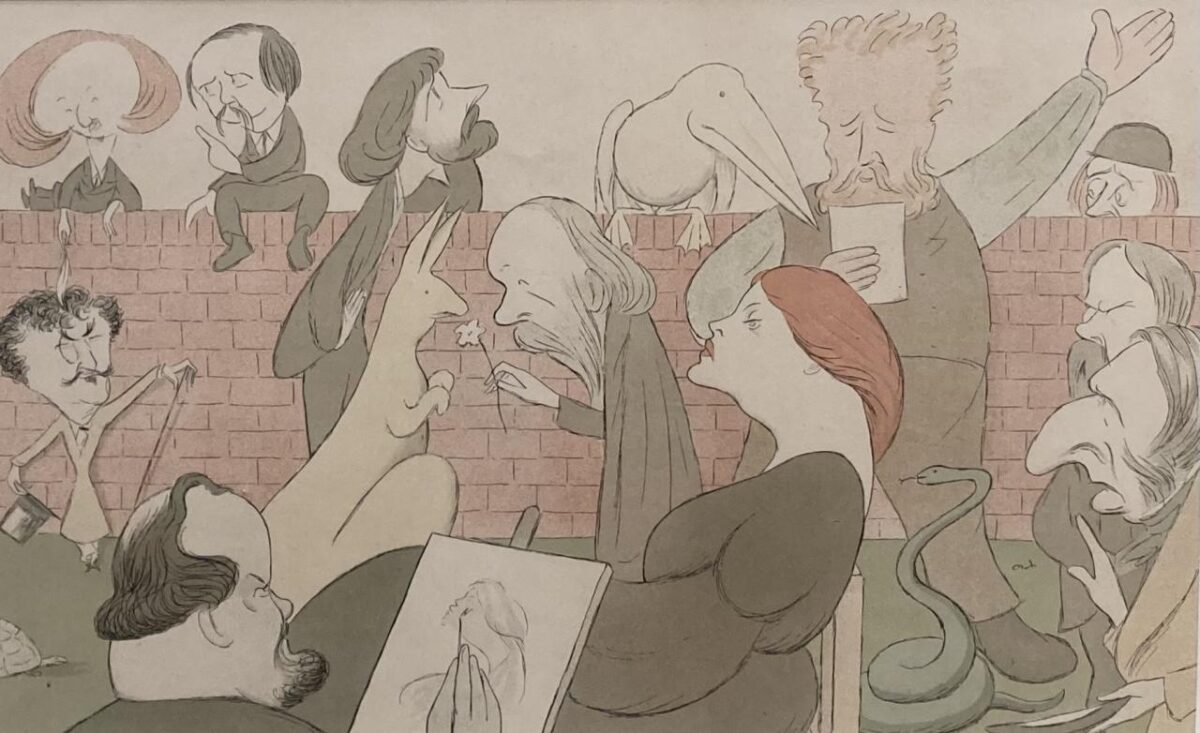

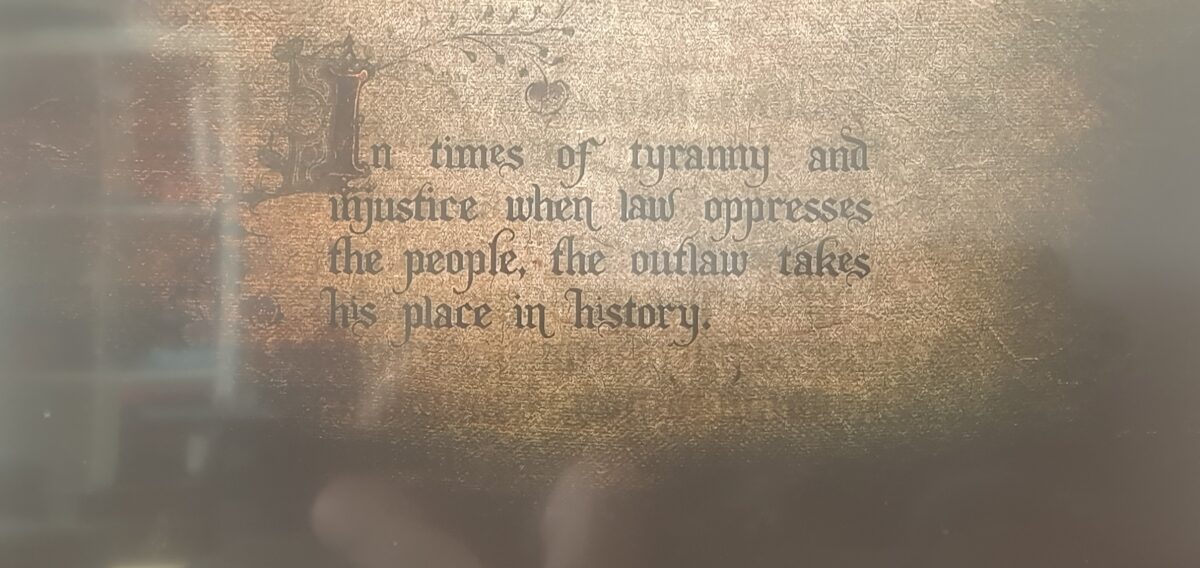
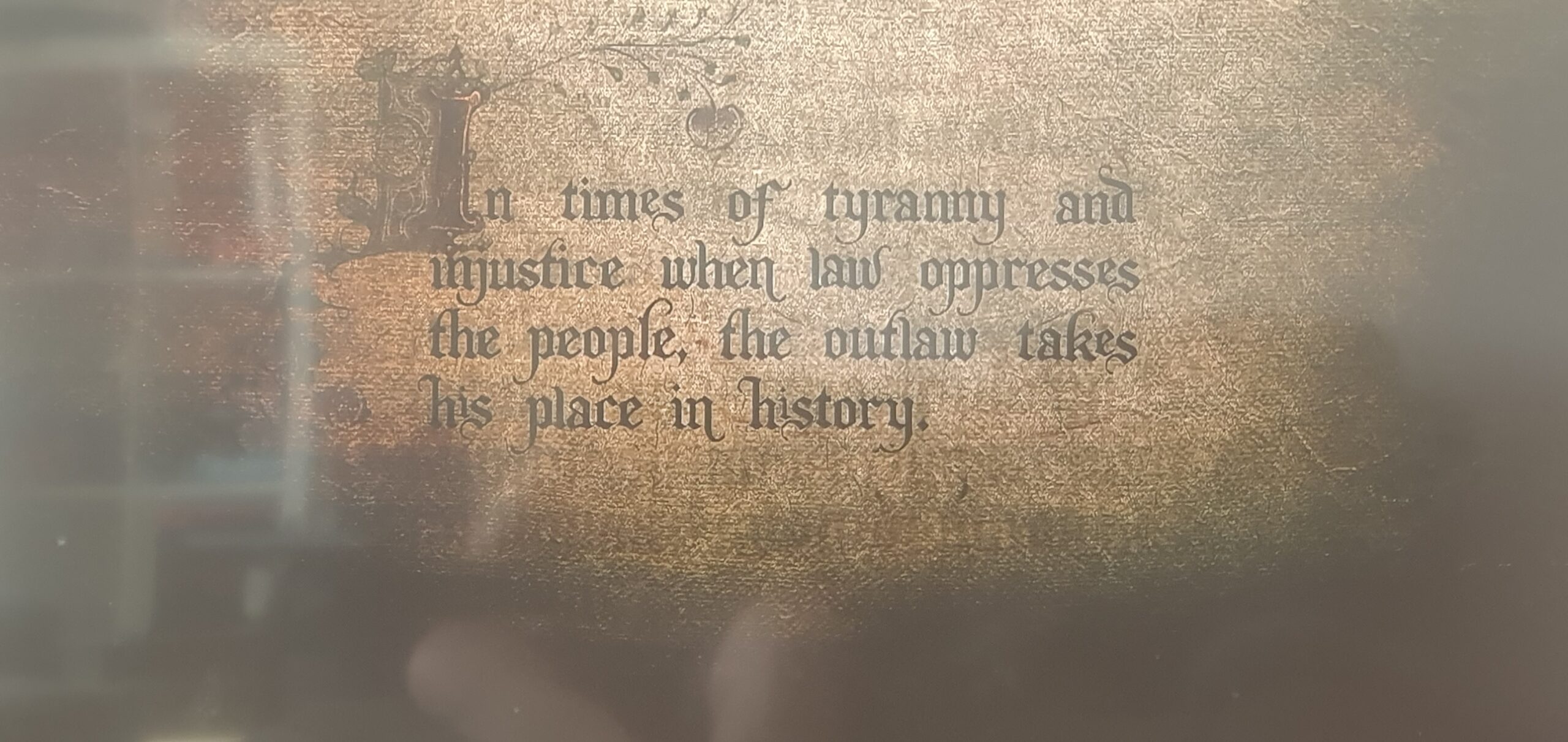

 On the evening of March 28, 2025, at approximately 7:30 PM, comedian Jonathan Randall was standing in shock outside the Fear City Comedy Club, a relatively new venue on Essex Street owned and established by 56-year-old Swedish emigre Johan “Jonezy” Ankarcrona. Jonezy, as he likes to be called, had racked up living time in Durango and San Francisco. He has been in America for twenty-three years. He ran into a bit of inheritance money and set up the comedy club. Randall, who is Jewish but who respectfully declined to divulge his age, had been excited to headline his own show. He had spent somewhere between ten to twenty hours that week promoting the gig — with no help from Jonezy, who had also capped the available tickets on Eventbrite at ten seats. (The venue holds sixty.)
On the evening of March 28, 2025, at approximately 7:30 PM, comedian Jonathan Randall was standing in shock outside the Fear City Comedy Club, a relatively new venue on Essex Street owned and established by 56-year-old Swedish emigre Johan “Jonezy” Ankarcrona. Jonezy, as he likes to be called, had racked up living time in Durango and San Francisco. He has been in America for twenty-three years. He ran into a bit of inheritance money and set up the comedy club. Randall, who is Jewish but who respectfully declined to divulge his age, had been excited to headline his own show. He had spent somewhere between ten to twenty hours that week promoting the gig — with no help from Jonezy, who had also capped the available tickets on Eventbrite at ten seats. (The venue holds sixty.) Randall has been at this for twenty years. And not only has he kept doing comedy, but it’s clear from the rising passion in his voice, as I listened to him while wearing an Angela Davis T-shirt, that he hasn’t burned out.
Randall has been at this for twenty years. And not only has he kept doing comedy, but it’s clear from the rising passion in his voice, as I listened to him while wearing an Angela Davis T-shirt, that he hasn’t burned out. Jonezy had been at this comedy club business for around six months, according to local and state public records. He applied for a beer and wine license and was daunted by the relatively facile pro forma requirements. So he gave up.
Jonezy had been at this comedy club business for around six months, according to local and state public records. He applied for a beer and wine license and was daunted by the relatively facile pro forma requirements. So he gave up.